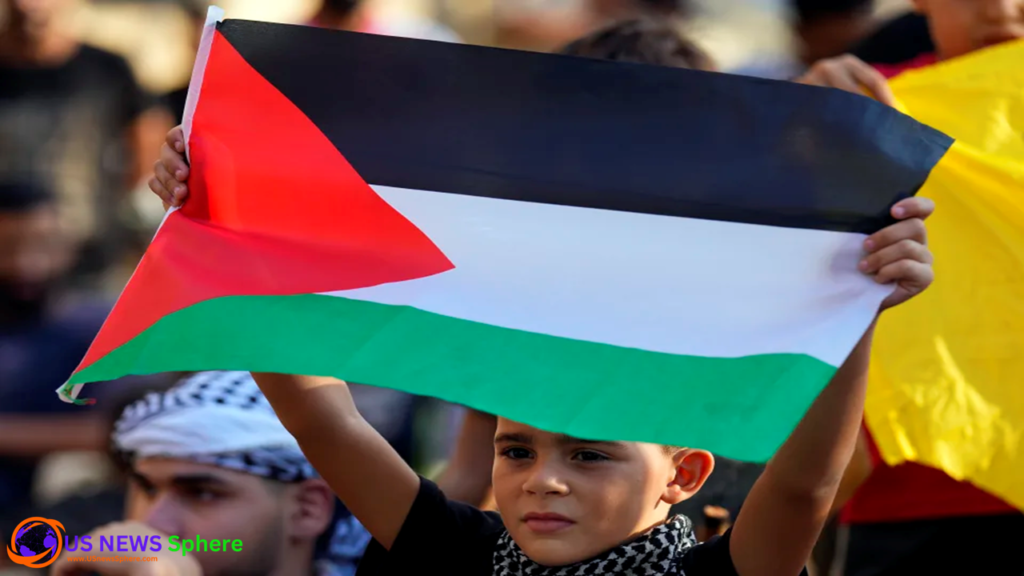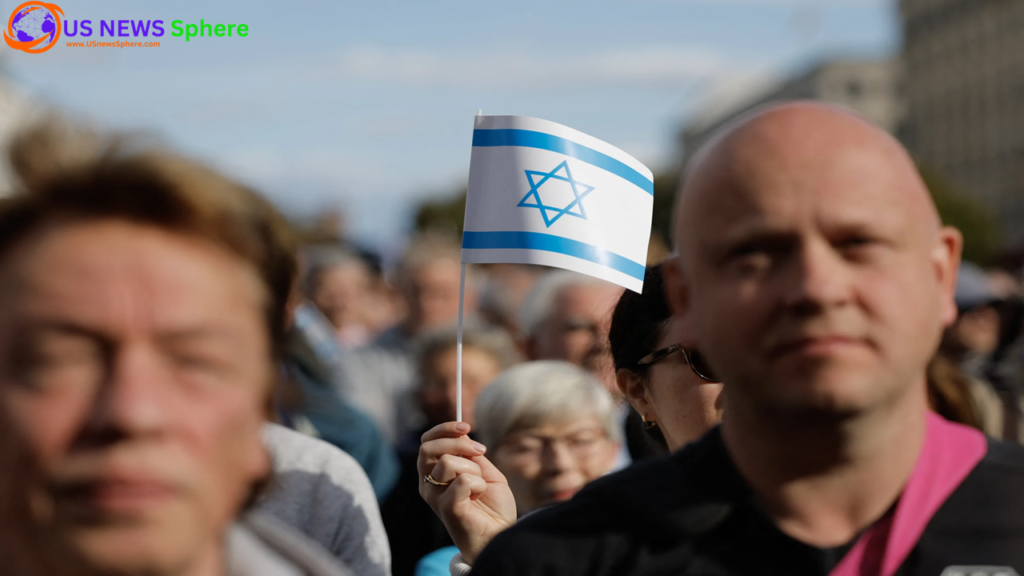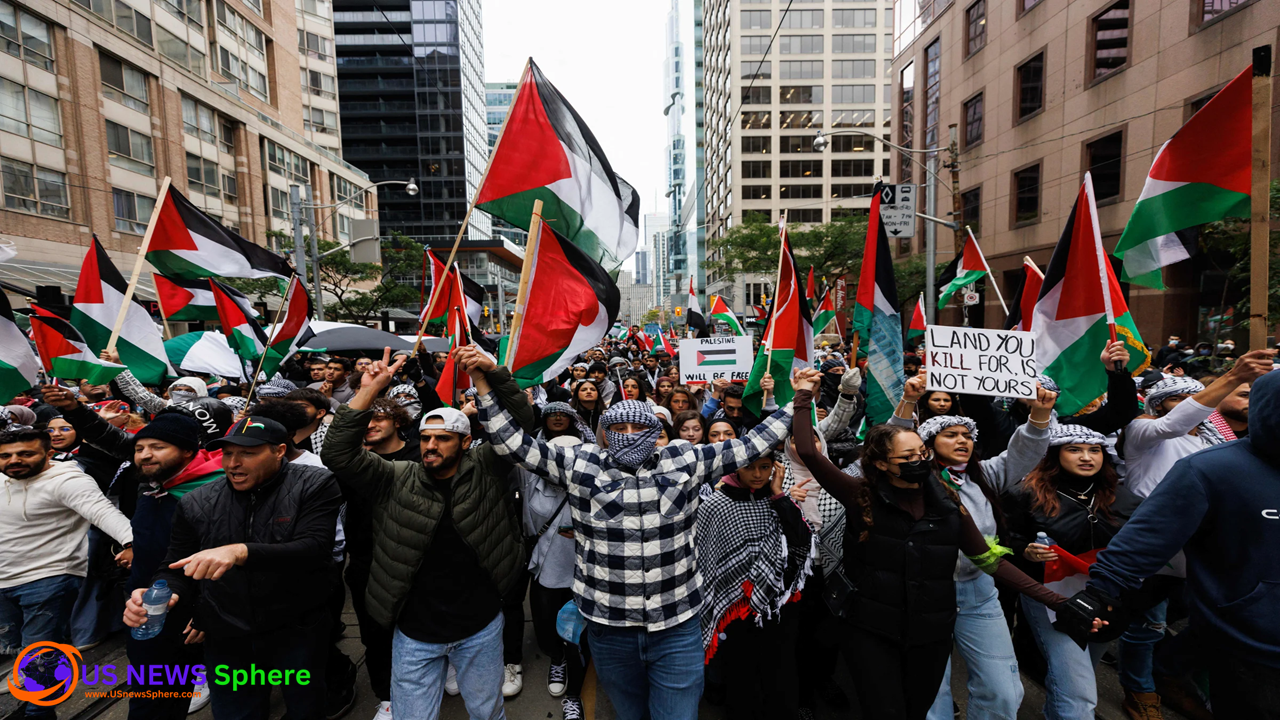The recent outbreak of war between Israel and Hamas has ignited intense and emotional rallies across the globe, as the conflict enters its fifth day. Protests in support of both Israel and Palestine have surfaced, revealing the deep-seated tensions and long-standing political disputes that world leaders have struggled to resolve.
Table of Contents

A boy holds up a Palestinian flags during a rally in solidarity with the Palestinian people in Gaza, at Bourj al-Barajneh Palestinian refugee camp, in Beirut, Lebanon, Wednesday, Oct. 11, 2023 (USnewsSphere.com); npr
“The Worldwide Demonstrations”
Amidst the gruesome details emerging from southern Israel and the Gaza Strip, people worldwide have taken to the streets to express their solidarity and grievances. However, some of these protests have escalated into unfortunate displays of antisemitism, further intensifying the already heated atmosphere.
“The Middle East’s Historical Involvement”
For over 75 years, the plight of the Palestinians has resonated with their neighboring countries, including Jordan, Lebanon, and Egypt. Despite their vocal support, these nations have faced criticism for not doing enough to improve the lives of Palestinian refugees.
“Post-Abraham Accords Era”
The recent attacks came on the heels of a period of normalized diplomatic relations between Israel and the Arab world, following the Abraham Accords. Speculation arises that Hamas executed these attacks to thwart a potential agreement between Israel and Saudi Arabia, potentially shifting the focus away from Palestinian statehood.
“The Isolation of Israel”

As Israelis mourn and Gazans prepare for retaliation, Israel once again finds itself isolated in the Middle East. The simmering Palestine issue has been a ticking time bomb, as scholars have repeatedly warned. Demonstrators in various capitals across Europe, such as London, expressed their support for Palestine with chants and banners that likened Israel to Nazis.
“Complex Realities in Europe”
The protests in European cities reflect a myriad of factors, including the legacy of Arab migration to the continent, deep-seated antisemitism, and the challenges of globalization. Recent migration waves, combined with cultural differences, have occasionally resulted in clashes and violence.
“Protests in Cities with Dark Histories”
Many pro-Palestinian protests are taking place in cities that once witnessed the deportation of Jews to Nazi concentration camps during World War II. This historical trauma adds a complex layer to the ongoing tensions.
“Rising Antisemitism”
Incidents of antisemitism have been reported in France and the United States, where pro-Palestinian rallies occasionally devolve into displays of hatred and intolerance. These episodes underline the challenges of discussing the Israel-Palestine conflict and social justice.
“American Campuses and the Palestinian Cause”
The Palestinian cause has garnered significant support on American college campuses, often catalyzed by the Black Lives Matter movement’s connection between domestic racism and international struggles. This intersection has led to growing tensions and debates among students, including some who are Jewish.
The global protests surrounding the Israel-Hamas conflict are a stark reminder of the complexities and sensitivities involved in this enduring issue. As we witness rallies expressing solidarity and tension, it is essential to approach this topic with sensitivity and a deep understanding of the historical context, without condoning antisemitism or hatred. These demonstrations reflect the need for continued dialogue and diplomacy to resolve one of the world’s most enduring conflicts.





